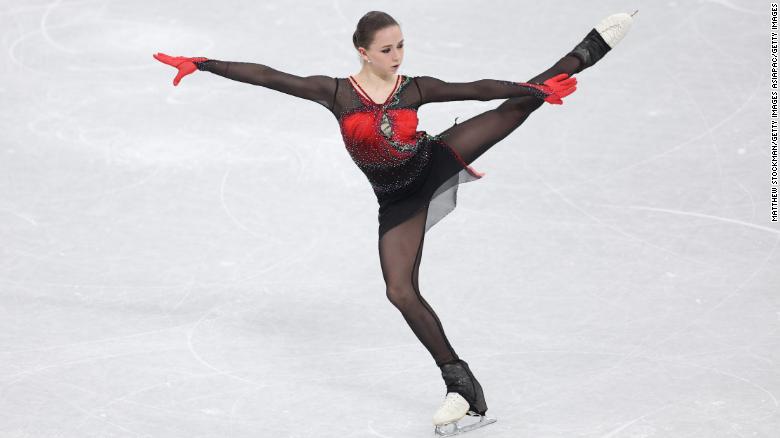A Group of Indigenous Women is Being Trained to Safeguard Coral Reefs under Threat from Climate Change
一群原住民婦女正接受培訓,以保護受氣候變化危脅的珊瑚礁
Sciences
Over 25 per cent of all marine species live in coral reefs and they also provide coastal protection from waves, storms, and floods. But in the last 70 years, half of the world’s reefs have been lost and 90 per cent are likely to disappear by 2050 due to climate change. Since 2017, the NGO Sea Women of Melanesia has been working hand in hand with local communities on marine conservation in the Solomon Islands and in Papua New Guinea. Sea Women of Melanesia trains local women in essential skills including marine science, snorkelling and underwater photography. They then help monitor and assess the impacts of widespread coral bleaching on some of the world's most endangered reefs. And local communities have their knowledge to share too which, when combined with the science, helps protect the reefs. --from EURONEWS. Article with video.
珊瑚礁蘊育超過25%的海洋物種,它們也為海岸抵禦海浪、風暴和洪水。但過去70年裡,世上一半的珊瑚礁已消失;到2050年止,90%的珊瑚礁將因氣候變化而消失。自2017年起,非政府組織「美拉尼西亞海女」即與當地社區合作,在索羅門群島和巴布亞新幾內亞展開海洋保護工作。該組織訓練當地婦女的基本技能,包括海洋科學、浮潛和水中攝影。然後,她們幫忙監測和評估泛珊瑚白化對世界一些最瀕危珊瑚礁的影響。各地社區也有他們的知識可共享,結合科學來保護珊瑚礁。--from EURONEWS. Article with video.
Paralysed Man Walks again Thanks to Electrodes in His Spine
多虧植入脊椎的電極讓癱瘓的他再度行走Paralysed man walks again thanks to electrodes in his spine 多虧植入脊椎的電極讓癱瘓的他再度行走
Sciences
A man who was paralysed in a motorcycle accident in 2017 has regained the ability to walk after doctors implanted electrodes in his spine to reactivate his muscles. Developed by a neuroscientist at the Swiss Federal Institute of Technology in Lausanne and a neurosurgeon at Lausanne university hospital, the system uses a soft, flexible electrode that is laid on top of the spinal cord nerves, underneath the vertebrae. The electrode delivers electrical pulses to spinal cord nerves that control different muscles in the legs and torso. The pulses, in turn, are controlled by software on a tablet that issues instructions for a certain action. The research team said the electrical implant had helped 3 male patients, aged 29 to 41, to stand, walk, ride a bike and even kick their legs in a swimming pool. --from The Guardian
一名2017年因車禍癱瘓的男子,經醫師將電極植入他的脊椎,刺激肌肉反應後,重獲行走能力。由瑞士聯邦理工學院的一位神經科學家和洛桑大學醫院的一位神經外科醫師共同開發的系統,以柔軟、有彈性的電極置入椎骨下方脊髓神經頂端。電極傳送電脈波到控制腿部、軀幹不同肌肉的脊髓神經,由平板電腦操作軟體操控電脈波傳導,刺激肌肉作出特定動作。研究團隊表示,這種電子植入物已幫助3名29-41歲的男性患者站立、行走、騎單車,甚至在泳池裡踢腿。--from The Guardian
The Canadian Trucker Protest is in Its Second Week
加拿大卡車司機反疫苗示威活動已進入第二週
Culture
A massive protest by Canadian truckers and others against Covid-19 mandates has entered a second week, crippling downtown Ottawa with no end in sight. The city's mayor has declared a state of emergency, and the capital's police chief is calling for outside help to deal with the protesters. So what exactly are the demonstrations about, and what's being done to address them? Why are the protests taking place now? Here are some key questions and answers about Canada's Covid-19 protests. --from CNN. Article with video.
加拿大卡車司機和其他針對 Covid-19 規定的人大規模抗議已進入第二週,渥太華市中心陷入癱瘓,看不到盡頭。 該市市長已宣布進入緊急狀態,首都警察局長正在呼籲外部援助以應對抗議者。那麼這些示威究竟是關於什麼的,以及正在採取什麼措施來解決這些問題呢? 為什麼現在發生抗議活動? 以下是有關加拿大 Covid-19 抗議活動的一些關鍵問題和答案。--from CNN. Article with video.
Kamila Valieva: Russian Figure Skater Becomes First Woman to Land a Quad at the Winter Olympics
俄羅斯花樣滑冰運動員卡米拉·瓦列娃成為首位在冬奧會上完成四周跳的選手
Culture
Russian teenage figure skater Kamila Valieva made history at the Winter Olympics in Beijing on Monday as she became the first woman to land a quad at the Games. The 15-year-old Valieva landed two quads in the team event as the Russian Olympic Committee (ROC) secured gold ahead of USA in silver and Japan in bronze at the Capital Indoor Stadium. --from CNN
俄羅斯青少年花樣滑冰運動員卡米拉·瓦列娃於週一的北京冬奧會上創造了歷史,成為第一位在冬奧會上完成四周跳的選手。15 歲的瓦列娃在團體賽中完成兩次四周跳,也讓俄羅斯奧委(ROC)得以守住金牌,領先美國的銀牌及日本的銅牌。--from CNN
Brain's Decline Accelerates in Years After Heart Attack
心髒病發作後數年大腦衰退加速
Health
"It's important to know that cognitive decline is a possibility after a heart attack, so physicians are both managing patients' heart disease and looking for signs of dementia following a heart attack". "It can even be a great conversation-starter about why it's important for patients to follow medical advice to prevent a heart attack.", Dr. Michelle Johansen said. The researchers suggested several possible reasons for the link between heart attack and mental decline, including ongoing damage to the brain from silent strokes, which are not large enough to cause symptoms but still reduce the supply of blood to the brain. Other possible reasons include shared risk factors for heart attack and dementia, such as smoking and high blood pressure; and the risk of mini-clots that travel from the heart to the brain, reducing its oxygen supply. "For too long, we have thought about and addressed heart disease and brain disease as two separate conditions, and based on our study's findings and other research, I don't think we're going to be able to keep doing that as we learn more," Johansen said. --from US NEWS
醫學博士強納森博士說,“重要的是要知道心臟病發作後可能會出現認知衰退,因此醫生既要管理患者的心臟病,又要尋找心臟病發作後的癡呆跡象” ,“它甚至可以成為一個很好的對話起頭,說明為什麼患者遵循醫療建議以預防心臟病發作很重要。”研究員們提出了心臟病發作與智力下降之間聯繫的幾個可能原因,包括無聲中風對大腦的持續損害,這些中風不足以引起症狀,但仍會減少大腦的血液供應。其他可能的原因包括心臟病發作和癡呆症的共同風險因素,例如吸煙和高血壓;以及心臟傳播到大腦的微型凝塊的風險,從而減少其氧氣供應。強納森博士說,長期以來,我們一直將心臟病和腦部疾病視為兩種不同的疾病並加以解決,根據我們的研究結果和其他研究,我認為隨著我們的學習,我們將無法繼續這樣認為。” --from US NEWS
Humans' Sense of Smell May Be Getting Duller
人類的嗅覺可能越來越遲鈍
Health
A new study that tested volunteers' perceptions of various smells -- including underarm odor -- adds to growing evidence that people's sense of smell is declining, little by little. In this study, researchers in the United States and China analyzed the genomes of 1,000 Han Chinese people. They were looking for genetic variations associated with how individuals perceived 10 scents. These findings and previous research show that people with ancestral versions of the brain's scent receptors tend to find the corresponding odor more intense. Ancestral versions are those shared with non-human primates, and this finding supports the theory that our sense of smell has weakened over time due to gene changes, the team explained. --from US NEWS
一項測試志願者對各種氣味(包括腋下體味)感知的新研究增加了越來越多的證據,顯示人們的嗅覺正在逐漸下降。在這項研究中,美國和中國的研究人員分析了 1000 名漢族人的基因組。他們正在尋找與個人如何感受10 種氣味相關的遺傳基因型。這些發現和之前的研究指出,擁有祖先版本的大腦氣味感受基因型的人往往會發現相應的氣味更強烈。研究小組解釋,祖先版本是與非人類靈長類動物共有的版本,這支持我們的嗅覺由於基因變化隨著時間推移減弱的理論。 --from US NEWS
